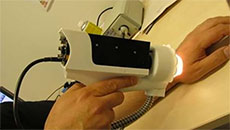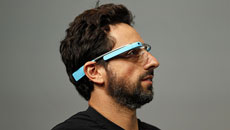In what could be called a game changer in search of life outside our galaxy, astronomers have used a digital camera imaging technology to take a picture of a planet far from our solar system with an earth-based telescope.
University of Arizona (UA) researchers snapped images of a planet outside our solar system with an earth-based telescope using essentially the same type of imaging sensor found in digital cameras instead of an infrared detector.
This takes astronomers a small step closer to what would be needed to image earth-like planets around other stars.
"This is an important next step in the search for exoplanets because imaging in visible light instead of infrared is what we likely have to do if we want to detect planets that might be suitable for harbouring life," explaied Jared Males, a NASA Sagan Fellow in the UA's department of astronomy and steward observatory.
The use of a digital camera-type imaging sensor -- called a charge-coupled device or CCD -- opens up the possibility of imaging planets in visible light, which has not been possible previously with earth-based telescopes.
"This is exciting to astronomers because it means we now are a small step closer to being able to image planets outside our solar system in visible light," added Laird Close, a professor in the department of astronomy.
All the other earth-based images taken of exoplanets close to their stars are infrared images which detect the planets' heat.
This limits the technology to gas giants -- massive, hot planets young enough to still shed heat.
In contrast, older, possibly habitable planets that have cooled since their formation do not show up in infrared images as readily.
"Our ultimate goal is to be able to image what we call pale blue dots. After all, the earth is blue. And that is where you want to look for other planets -- in reflected blue light," Maled noted in a paper published in The Astrophysical Journal.




